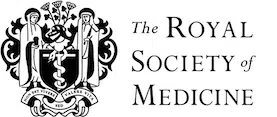The word “maxillofacial” refers to the jaws and face. Those surgeons specialising in maxillofacial surgery generally also specialise in oral surgery. Oral and maxillofacial surgery is a dental specialty involving the diagnosis and surgical treatment of diseases, defects, and injuries of the mouth, jaws, and face. It is unique in the UK and many other European countries in that it requires dual qualification in medicine and dentistry, along with comprehensive general and specialist surgical training. It is regarded as the bridge between medicine and dentistry.
Maxillofacial Surgery
Why is it done?
Maxillofacial surgery encompasses a variety of surgical procedures to treat a plethora of conditions. As such, there are many possible reasons to have it done, depending on the condition and procedure required. Some procedures are necessary to save the patient’s life; others to stop pain or discomfort; some are performed to improve quality of life; others are purely cosmetic.
What conditions does an oral and maxillofacial surgeon treat?
Oral and maxillofacial surgery includes a wide range of procedures to treat a number of different conditions affecting the mouth, jaws, face, and neck. Some examples include:
- Surgical implantation of dental implants
- Removal of impacted teeth
- Removal of cysts and tumours in the jaw
- Head and neck cancer treatment, including removal of tumours, ablation, etc.
- Facial injuries
- Reconstructive surgery
- Temporomandibular joint surgery
- Removal of skin cancers on the face
- Management of benign and malignant salivary gland lesions
- Cosmetic surgery, e.g. facelift, rhinoplasty, etc.
- Surgery for facial deformities
Which subspecialties are included under oral and maxillofacial surgery?
The following subspecialties fall under oral and maxillofacial surgery:
- Craniofacial trauma – treatment of injuries to the hard and soft tissues of the face.
- Oral & maxillofacial – the maxillofacial element involves surgery of the jaws, temporomandibular joints, salivary glands, and facial skin lesions, while the oral element involves surgery on the mouth and teeth (including implants).
- Surgical treatment of head and neck cancer – tumour removal and reconstruction afterwards.
- Surgery for craniofacial abnormality
- Cosmetic surgery
- Oral medicine – diagnosis, treatment, and management of conditions of the mouth and surrounding structures.






